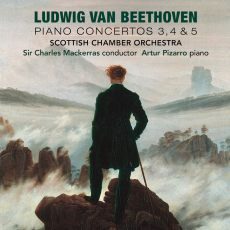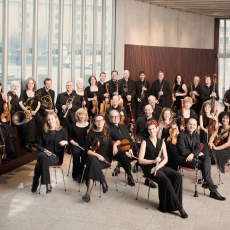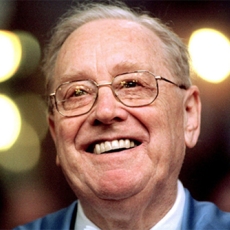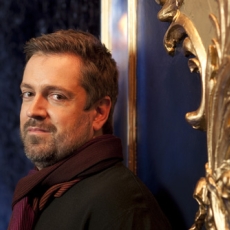Beethoven Piano Concertos 3, 4 & 5 - Classical Source
Opening with an arpeggio, the opening of Piano Concerto No.4 steals in; Artur Pizarro's touch is gentle, the response from the Scottish Chamber Orchestra sensitive, detailed and confident under Sir Charles Mackerras's seasoned and vital direction. A likeable spontaneity is evident, and the recorded balance is exemplary in reflecting Pizarro's primus inter pares relationship with the SCO and its conductor.
Here the Fourth Concerto sparkles and reflects in equal measure; it's an invigorating and poetic performance, refreshing and thoughtful, the woodwinds contributing much, and Pizarro makes a great deal of the first-movement cadenza (the more usual of Beethoven's two) by withdrawing into it until unleashing it. The slow movement introduces stern, rebuking strings, effectively cowed by Pizarro's unwavering saintliness (although the effect would have benefited from something that is more adagio); the finale is full of joie de vivre and roughish high spirits.
The ‘Emperor' Concerto eschews grandness for a pulsing rhetoric, incident-packed in the orchestra, Pizarro effectively shading his stealth (the choice of a Bluthner instrument seemingly ideal for subtlety and precise yet graded attack). The flow of the Adagio here works well in suggesting something dreamily lilting, and the finale is remarkably energised and pointed.
The Third Concerto begins with the most measured of Mackerras's tempos, invoking sombreness, but with the SCO also blazing in tuttis. Pizarro's first entrance is defiant, then lyrical. Such tension is meaningful and sustains a buoyant yet pressing-ahead first movement, the ‘song without words' slow movement the bridge to a sprightly finale, which finally vanquishes earlier darkness.
This so-familiar music is treated to a considerable ‘makeover'; no matter how many versions you may have of these indestructible pieces, this release is mandatory.



